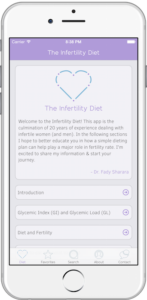Ovarian reserve testing helps us evaluate a woman’s fertility potential
Ovarian reserve testing is an important tool that Dr. Fady Sharara, our Virginia fertility doctor, uses to assess a woman’s fertility potential. Ovarian reserve refers to the quantity of eggs that remain in a woman’s ovaries. It tells us where the ovaries are in the aging process.
Age is an important, but not the only, determinant of ovarian reserve. Our Virginia fertility doctor, along with the American Congress of Obstetricians and Gynecologists, recommends that any woman with infertility regardless of age or duration undergo this testing.
Standard ovarian reserve testing includes measuring FSH and AMH
Our Virginia fertility doctor begins ovarian reserve testing with a blood test to check the levels of follicle stimulating hormone (FSH), luteinizing hormone (LH) and estradiol on day 2, 3, 4 or 5 of the menstrual cycle. It’s been clearly demonstrated that there are subtle rises in the FSH level as a woman ages, and women with abnormal FSH levels can have considerable difficulty conceiving on their own and with IUI or IVF. We also add a test to measure the chemical released by very immature follicles residing in the ovaries. However, Anti-Mullerian hormone (AMH) levels and antral follicle count (AFC, see below) have basically replaced FSH testing as these are earlier markers of diminished ovarian reserve than FSH.
An antral follicle count (AFC) is performed during an ultrasound exam
This type of testing is performed via a transvaginal ultrasound usually on the third day of the cycle. A low number of antral follicles (less than 10 in both ovaries) can predict a poor response to fertility treatment. Very high numbers (more than 30) suggest a tendency to over-respond to hormone stimulation, something that we commonly find in patients with polycystic ovary syndrome (PCOS).
Our Virginia fertility doctor is highly experienced with ovarian reserve testing
It’s important to understand that this testing is just a part of the picture, in combination with the patient’s age and response to previous treatment. Our experienced Virginia fertility doctor brings advanced knowledge to his study of these tests and his fertility evaluation. If you’re concerned about your fertility potential, contact us.


